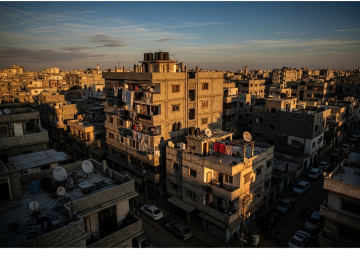The 5 Gravest War Crimes in Modern History Explained
The term war crimes evokes some of the darkest images in human history, representing a breach of the established rules of armed conflict and fundamental human dignity. These are not merely acts of violence inherent to warfare but specific, prohibited actions that violate international humanitarian law. Understanding what constitutes these crimes, the legal frameworks designed to prosecute them, and their historical context is crucial for comprehending modern global conflicts and the ongoing pursuit of international justice. From targeted civilian attacks to genocide, these acts represent the ultimate failure of humanity during its most trying times.

What Legally Constitutes War Crimes?
The legal foundation for identifying and prosecuting war crimes is built upon a series of international treaties, most notably the Geneva Conventions and their Additional Protocols, the Hague Conventions, and the Rome Statute of the International Criminal Court. These documents outline the “rules of war,” which apply to all parties in an international conflict. A violation of these rules can be considered a war crime. While the full list is extensive, they are broadly categorized into several key areas.
According to international law, particularly the Rome Statute, war crimes include:
- Grave breaches of the Geneva Conventions: This category targets actions against persons or property protected by the conventions. This includes willful killing, torture or inhuman treatment, and willfully causing great suffering or serious injury to body or health.
- Other serious violations of the laws and customs applicable in international armed conflict: This is a broader category that covers a range of offenses. Examples include intentionally directing attacks against the civilian population, attacking undefended towns or buildings, and killing or wounding a combatant who has surrendered.
- Violations applicable in armed conflicts not of an international character: The law also recognizes that war crimes can occur during civil wars. These include acts like murder, mutilation, cruel treatment, and torture committed against persons taking no active part in the hostilities.
- Using prohibited weapons or methods of warfare: This includes the use of poison or poisoned weapons, asphyxiating gases, and bullets that expand or flatten easily in the human body.
It is important to note that these acts must be committed within the context of an armed conflict. The intent behind the act is also a critical component for prosecution. For example, an accidental civilian death may be a tragedy of war, but intentionally targeting a civilian hospital is a war crime.
Examining 5 Significant Cases of War Crimes
History provides grim examples of these laws being violated on a massive scale. Examining these cases helps contextualize the legal definitions and underscores the profound human cost of such atrocities. Here are five significant instances that are widely recognized as involving severe war crimes.

1. The Holocaust (1941-1945): While often categorized primarily as genocide and crimes against humanity, the systematic persecution and murder of six million Jews and millions of other victims by the Nazi regime also included countless war crimes. The Nuremberg Trials, held after World War II, established a landmark precedent for prosecuting individuals for such offenses, cementing the principle that “following orders” is not a defense for committing atrocities.
2. The Srebrenica Massacre (1995): During the Bosnian War, Bosnian Serb forces systematically executed more than 8,000 Bosniak Muslim men and boys in and around the town of Srebrenica. The event was declared an act of genocide by the International Criminal Tribunal for the former Yugoslavia (ICTY). This remains one of the most horrific single acts of mass murder in Europe since World War II and a stark example of ethnically motivated war crimes.
3. The Rwandan Genocide (1994): In a period of just 100 days, an estimated 800,000 members of the Tutsi minority ethnic group, along with moderate Hutus, were murdered by Hutu extremist-led militias. The International Criminal Tribunal for Rwanda (ICTR) was established to prosecute the leaders responsible for the genocide, war crimes, and crimes against humanity committed during the conflict.
4. Use of Chemical Weapons in the Syrian Civil War (2011-Present): The Syrian conflict has been marked by numerous allegations of war crimes from all sides. Among the most horrifying has been the repeated use of chemical weapons, including sarin and chlorine gas, against civilian populations. The 2013 Ghouta chemical attack, for instance, killed hundreds of civilians. International bodies have confirmed multiple instances of chemical weapon use by the Syrian regime, a clear violation of the Chemical Weapons Convention and international law. For detailed reporting on this, sources like The Associated Press provide extensive coverage.
5. The Siege of Mariupol, Ukraine (2022): The full-scale invasion of Ukraine by Russia has led to widespread accusations of war crimes. The siege and bombardment of the city of Mariupol stands out as a particularly brutal example. The campaign involved indiscriminate shelling of civilian areas, the targeting of a maternity hospital and a theater sheltering hundreds of civilians, and the denial of humanitarian aid, leading to a catastrophic loss of life. These actions have been widely condemned as grave breaches of the Geneva Conventions.
The Role of the International Criminal Court (ICC)
In the modern era, the primary body for prosecuting individuals accused of the gravest international crimes is the International Criminal Court (ICC), based in The Hague. Established by the Rome Statute in 2002, the ICC is a court of last resort. It can only investigate and prosecute genocide, crimes against humanity, and war crimes when national states are unable or unwilling to do so themselves.
The ICC’s jurisdiction, however, has limitations. It can generally only prosecute crimes committed in the territory of a state that has ratified the Rome Statute or by a national of such a state. Major world powers, including the United States, Russia, and China, are not parties to the statute, which creates significant challenges for holding powerful actors accountable. Despite these hurdles, the ICC has issued arrest warrants and conducted trials for individuals from various conflicts, from Uganda to the Democratic Republic of Congo.

The pursuit of justice for war crimes is a slow and arduous process, often fraught with political obstacles. However, the legal frameworks and institutions like the ICC represent a global commitment to a core principle: that even in war, there are lines that cannot be crossed, and those who commit the most heinous acts must be held accountable. The continued documentation and prosecution of these crimes serve not only as a punishment for past atrocities but also as a deterrent against future ones.















